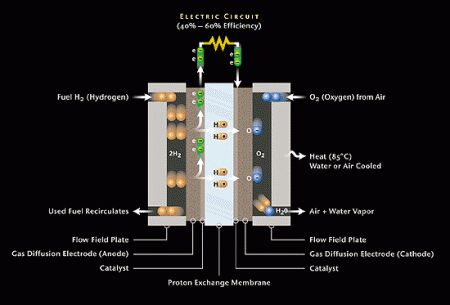Toyota Will Launch 2015 Fuel Cell Car, Volkswagen Won't

We’ve been saying it for years that Toyota, along with several other automakers, will launch a hydrogen fuel cell car in 2015. Two years ago, you heard it from Toyota’s Chief Engineer Satoishi Ogiso. A month ago, Toyota’s America-chief Jim Lentz promised that “the first fuel cell sedan is coming to the U.S. in 2015.” Now, Bloomberg says that “at the Tokyo Motor Show in November, Toyota plans to show a hydrogen-powered sedan that would be sold as a 2015 model.”
Bloomberg did not unearth anything you would not already know: The 2015 fuel cell model will be expensive. Two years ago, amounts in the neighborhood of $100,000 had been mentioned, but Ogiso wanted to bring the price down. Now, Bloomberg says the fuel cell car “could be available in U.S. dealerships as soon next year for a price comparable to a mid-size BMW or Tesla Model S.”
Bloomberg says “a mass-market for hydrogen cars may be a decade or more away,” but Ogiso wanted to start going mainstream by 2020.
One company will miss the hydrogen year of 2015, and that’s Volkswagen, R&D chief Ulrich Hackenberg told TTAC last week in Wolfsburg:
“We are concentrating on diesel. Fuel cell technology faces an infrastructure problem. The gas must be transported refrigerated. The total CO2 balance sheet is not so good, local emissions are quite nice. Range is also good.”
Hackenberg said that Volkswagen continues to work on fuel cell technologies, that MQB is ready is ready for it. Volkswagen focuses on diesel and thinks CNG has a future in Europe, and that hybrid seems the way to go in the U.S. and China.

Bertel Schmitt comes back to journalism after taking a 35 year break in advertising and marketing. He ran and owned advertising agencies in Duesseldorf, Germany, and New York City. Volkswagen A.G. was Bertel's most important corporate account. Schmitt's advertising and marketing career touched many corners of the industry with a special focus on automotive products and services. Since 2004, he lives in Japan and China with his wife <a href="http://www.tomokoandbertel.com"> Tomoko </a>. Bertel Schmitt is a founding board member of the <a href="http://www.offshoresuperseries.com"> Offshore Super Series </a>, an American offshore powerboat racing organization. He is co-owner of the racing team Typhoon.
More by Bertel Schmitt

































Comments
Join the conversation
VW: We are concentrating on diesel... That is not a honest statement. Already VW-s own turbocharged direct injection petrol engines are getting almost the same mpg than similar capacity diesels. And diesel fuel itself is more expensive. Petrol engines are cleaner and cheaper to produce. Anyone working in the automotive sector in Europe knows that the newer "clean" diesels are causing lot of headaches for the manufacturer during warranty and after warranty the headaches are transferred to the owners of the car. DPF and EGR issues just to name a few. The full list of potential problematic details is long.
A bifuel petrol/hydrogen vehicle can get the best of both worlds.
"The gas must be transported refrigerated" Ulrich, apparently you've never heard of Honda's Home Energy Station? Neither has anyone of your 16,000 engineers? Nah. http://en.wikipedia.org/wiki/Home_Energy_Station
Toyota is doing this for one, maybe two reasons: 1) Toyota wants a new eco halo car now that halo around the Prius has been superceded by the Nissan Leaf, Chevy Volt and Tesla Model S, and/or 2) Toyota is building a compliance car as intimated in a link in the article above. Obviously, it's highly unlikely that a hydrogen fuel cell car will be a big success early on. As for CNG for Europe, I'm not sure why. Europe imports lots of natural gas from Russia, which is prone to disrupting shipments of natural gas to Europe for political reasons. Besides, lots of Europe is against fracking, which is a big reason why natural gas has gotten cheaper in America while overall commodity prices have risen.